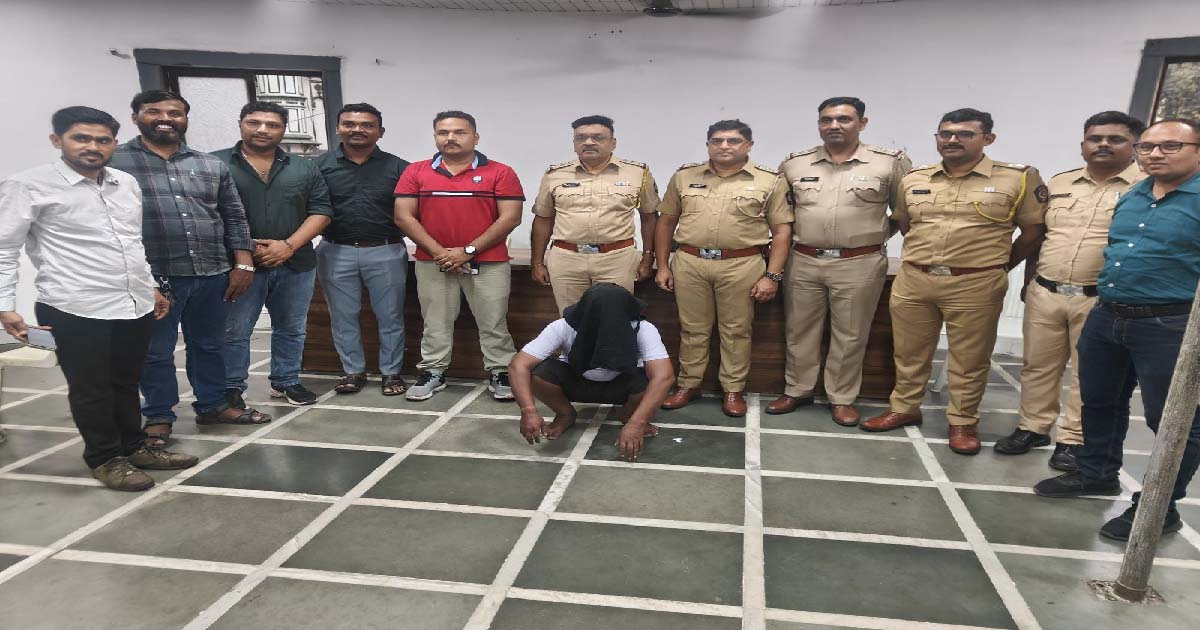Maharashtra
Shiv Sena UBT Leader Aaditya Thackeray Raised Questions On Approved Projects Worth Over Rs 40,000 Crore By State Cabinet

The tripartite Mahayuti government, which was by far on autopilot mode until recently, has lately become the buzzword for action, announcing a slew of projects — mostly infrastructure, seemingly blind to financial constraints and the red flags raised by the finance department. At the state cabinet meeting on September 30, infrastructure projects worth over Rs 40,000 crore were approved. Shiv Sena UBT leader Aaditya Thackeray raised a few questions on a project recently approved by the state cabinet on Thursday, Thackeray asked.
The Prime Minister’s Office (PMO) confirms the PMs presence at an event only after obtaining detailed information. In this case, what information had the PMO sought and had it verified whether all the necessary permissions had been obtained for the project, Thackeray wanted to know.
Speaking about the road concretisation project in Mumbai, he said though the project was launched two years ago, just nine per cent of the work had been completed, which was revealed through RTL How could the PM inaugurate or grace groundbreaking ceremonies for such projects, Thackeray queried.
The PM is going to perform the ground-breaking ceremony for the Thane-Borivli tunnel project though the contractor has provided a bank guarantee from a bank in the West Indies. Has the RBI allowed such a bank guarantee, Thackeray asked, raising the issue of the propriety of the PM in officiating such events.
Training his guns on Mumbai Metropolitan Region Development Authority (MMRDA) next, Thackeray said, though the ‘bhumi pujan’ for the Chhatrapati Shivaji Maharaj Smarak in the Arabian Sea was done in 2017, nothing had moved further, except cost escalation.
Similarly, many projects including metro works had either been delayed or stuck on various grounds. He warned that after the Maha Vikas Aghadi (MVA) government came to power, it would conduct a thorough probe and the administrative head of the agency would have to face inquiry.
Meanwhile, it is being said that the contractor for the Thane-Borivali project was asked to obtain bank guarantee from a national bank, which is under the jurisdiction of Indian courts and governed by Indian laws. Questions are also being raised over the cost escalation of the project, which was pegged at Rs 14,400 crore a few months ago but now, the state cabinet has approved Rs 18,800.40 crore for it.
Maharashtra
Govandi is changing: Successful Talent of Govandi Festival filled with children’s artistic talents

Govandi: With the aim of changing the negative image of Govandi, notorious for drug addiction and crime, and providing a bright future for the children here, the Abu Asim Azmi Foundation, led by local MLA Abu Asim Azmi, has taken a big step. The foundation recently successfully organized the “Talent of Govandi Festival”, which was going on for the past one month.
The festival organized various competitions related to education, sports, skills and talents. Thousands of children from Govandi, Mankhurd, and Shivaji Nagar enthusiastically participated in more than 17 competitions, including singing, dancing, drawing, speech, mehndi, recitation, naat, handicrafts, rangoli, carom, boxing, cricket, volleyball, badminton, karate and poetry. The children performed brilliantly by showcasing their talents and hard work. The new and hidden talents of Govandi were introduced not only locally but also internationally. On this occasion, those IAS officers who added to the glory of Govandi were also honored. MLA Abu Asim Azmi, motivational speakers Sir Awadh Ojha and Sana Khan, and social media influencer Faizo among other dignitaries were present at the event. All of them encouraged the children and gave them prizes. The main objective of the festival was to encourage children to stay away from drugs and choose a better life and make their future bright, through which the talents of the children of Govindi were introduced to the whole world.
Maharashtra
Accused wanted in Madhya Pradesh murder arrested after 7 years from Dhoni

Mumbai: Paidhoni Police Station has traced the accused who was absconding for 7 years in a murder case in Madhya Pradesh and handed him over to the Madhya Pradesh Police. 6 November
From Katni district of Madhya Pradesh, Police Sub-Inspector Rishabh Singh Baghel, Dilip Kaul of Barhi Police Station informed Paidhoni Police that a case has been registered under sections 302, 294, 323, 324, 506, 147, 148 of the Indian Penal Code at Barhi Police Station, Katni district, Madhya Pradesh. The accused in this case is wanted for the last 7 years and is still hiding in the limits of Paidhoni Police Station in Mumbai, help has been sought from the police to trace him. This was informed to Hon. After which the higher officers were informed about this and the above wanted accused was searched and he was detained from the footpath near Balgi Hotel, P.D. Melo Road, Masjid Bunder East, Mumbai. Later he was brought to the Paidhoni Police Station and interrogated regarding the crime. Since there was evidence of his involvement in the crime, the said accused was handed over to the police team at the above police station, district. Katni and they took him to the Barhi Police Station. Where further investigation is underway. The accused has been identified as Raja Ram Ramadhar Tiwari, 35 years old. With the cooperation of the Mumbai Police, the Madhya Pradesh Police solved the case and the wanted accused has been arrested on charges of murder.
Maharashtra
Mumbai Weather Update: City Wakes Up To Clear Skies, Mild Breeze; Overall AQI Stays In Moderate Range At 78

wether
Mumbai: After weeks of unsettled weather and intermittent showers, the city finally woke up to clear skies and crisp air on Thursday, marking what appears to be the end of the monsoon season. For the past two days, no rainfall was recorded across Mumbai, signalling that the retreating monsoon clouds have made way for the onset of post-monsoon conditions.
According to the India Meteorological Department (IMD), the city is expected to experience clear skies through the day, with only a minimal chance of isolated light showers or thunderstorms in select pockets. Daytime temperatures are likely to hover around 33°C, while the minimum will settle near 23°C, conditions described as pleasant and comfortable for early November.
The recent spell of short but intense showers had not only brought temporary relief from humidity but also helped wash out accumulated pollutants, leading to an overall improvement in air quality. Prior to this, the withdrawal of monsoon winds had caused a spike in pollution levels due to stagnant air and increased vehicular emissions, resulting in a hazy skyline and reduced visibility.
Fresh data released by AQI.in on Thursday morning reflected this improvement. Mumbai’s overall Air Quality Index (AQI) stood at 78, placing it in the moderate category. While the figure marks a slight dip from the good air quality recorded earlier in the week, it still represents a substantial improvement compared to the smog-filled conditions observed after monsoon withdrawal.
Residents across various parts of the city reported clearer skylines and visibly better air. Among the city’s monitoring stations, Wadala Truck Terminal recorded the highest AQI reading at 92, followed by Parel-Bhoiwada (90) and Mulund West (88). Santacruz East and Bhandup West both registered an AQI of 87, keeping them within the moderate range.
Cleaner air was observed in several western suburbs, where Kandivali East recorded an AQI of 45, falling in the good category. Malad West (59), Powai (62), Jogeshwari (65), and Borivali East (67) were all categorised as moderate, suggesting a consistent improvement across the city’s landscape.
As per AQI.in’s classification, an index between 0–50 is considered “Good,” 51–100 “Moderate,” 101–150 “Poor,” 151–200 “Unhealthy,” and anything above 200 is deemed “Severe” or “Hazardous.”
-

 Crime3 years ago
Crime3 years agoClass 10 student jumps to death in Jaipur
-

 Maharashtra1 year ago
Maharashtra1 year agoMumbai Local Train Update: Central Railway’s New Timetable Comes Into Effect; Check Full List Of Revised Timings & Stations
-

 Maharashtra1 year ago
Maharashtra1 year agoMumbai To Go Toll-Free Tonight! Maharashtra Govt Announces Complete Toll Waiver For Light Motor Vehicles At All 5 Entry Points Of City
-

 Maharashtra1 year ago
Maharashtra1 year agoFalse photo of Imtiaz Jaleel’s rally, exposing the fooling conspiracy
-

 National News1 year ago
National News1 year agoMinistry of Railways rolls out Special Drive 4.0 with focus on digitisation, cleanliness, inclusiveness and grievance redressal
-

 Maharashtra12 months ago
Maharashtra12 months agoMaharashtra Elections 2024: Mumbai Metro & BEST Services Extended Till Midnight On Voting Day
-

 National News1 year ago
National News1 year agoJ&K: 4 Jawans Killed, 28 Injured After Bus Carrying BSF Personnel For Poll Duty Falls Into Gorge In Budgam; Terrifying Visuals Surface
-

 Crime1 year ago
Crime1 year agoBaba Siddique Murder: Mumbai Police Unable To Get Lawrence Bishnoi Custody Due To Home Ministry Order, Says Report












